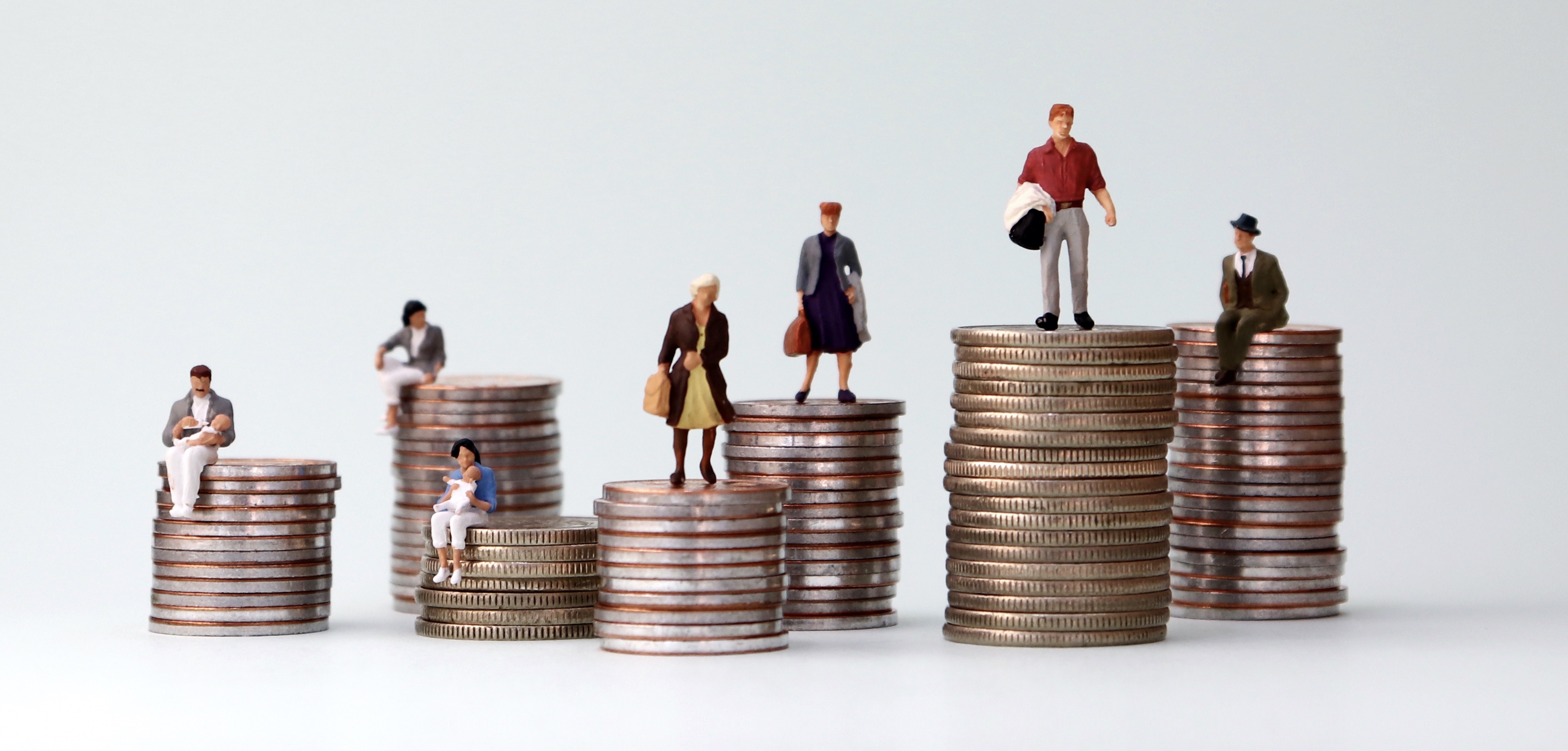Taxation has always been a polarizing topic. Should we keep our income or share our wealth?
“Inequality is rising in many countries across the world, and finding better policies to act against it is quite urgent. But we can’t just study what the effects of policies are,” said Stefanie Stantcheva, Ph.D. an economics professor at Harvard University and a guest speaker at a Feb. 9 Fordham lecture. “We also need to understand how people think about these policies.”
Stantcheva spoke at Fordham’s third distinguished lecture in economics, titled “How People Think About the Economy: Evidence from Social Economics Surveys.” She shared her newest research on how people view taxation and other policies that redistribute wealth to the poor.
People tend to think about redistribution policies in four ways, said Stantcheva. How will they impact economic activity? Who will win or lose? Are people entitled to keep their income or should they redistribute their wealth? And how much can we trust in the government—the institution that puts forth these policies?
The question that people are most concerned about is who will win or lose, along with the fairness of the policy, said Stantcheva. The problem, she added, is that we have very different ideas about what is fair.
Stantcheva and her colleagues examined four key factors that influence people’s perceptions on policy fairness: social mobility, immigrants, racial attitudes, and self-ranking in comparison to peers. They distributed surveys to thousands of people across several countries, including the U.S., to better understand their beliefs and the reasoning behind them.
How Negative Experiences Change Views on Inequality
One survey examined how people ranked their income level in relation to their peers and how their perception of their social position influenced their views on equity policies. The researchers found that people who ranked themselves more highly tended to believe that differences in income were fairer. They largely attributed their high income to their “hard work” rather than luck and believed that high-income earners deserved their income. They were also less supportive of redistribution policies, said Stantcheva.
But the high earners responded differently when they experienced a negative event. In the survey, they discussed the impact of negative events, including unemployment, disability, and hospitalization.
“What we can see is that a negative event makes people think that inequality is less fair, and a positive event like a promotion at work makes them think that inequality is more fair,” Stantcheva said. “There is much less effect on [beliefs about inequality when you consider]stickier views, like your political affiliation or your perception of how much of success is due to effort versus luck.”
Opposing Views on Race and Racial Inequities
Another project explored how attitudes toward race and racial inequities shape support for redistribution policies in the U.S. Stantcheva surveyed non-Hispanic Black and white adults and teenagers across the U.S. They were asked about their stance on the economic conditions and opportunities of Black and white Americans, their views on racial issues and causes of racial inequities, and their level of support for race-targeted and general redistribution policies.
The most controversial topic was causes of racial inequities and how to remedy them, said Stantcheva.
“What’s very important is that … it doesn’t depend on how big you think inequities are. It actually really depends on why you think those gaps exist to start with,” she said.
In the survey results, Democratic respondents from both races pointed to slavery in colonial America, long-standing discrimination, and racism as the causes of ongoing racial gaps. They supported income-targeted redistribution and race-targeted policies. On the other hand, many white Republican respondents said that lack of effort and individual decisions were the culprits of racial inequities. They were less likely to support the policies advocated by their counterparts.
What was incredibly striking was that these partisan gaps were already very prevalent among teenagers, said Stantcheva.
“Teenagers, who themselves yet don’t have a political affiliation and don’t vote yet, still respond in a manner that’s very aligned with their parents’ political affiliation,” she said. “These youths are already very, very entrenched at a very young age.”
Don’t Just Show Facts—Explain Their Story
Stantcheva and her colleagues wanted to know if they could change people’s policy views, so they conducted another experiment. First, they showed people facts about earning and opportunity gaps between Black and white Americans. This failed to sway anyone. But when they explained to the same group of people the causes and consequences of systemic racism—redlining, for example—that shifted people’s policy views, Stantcheva said.
“Simply showing people how unequal circumstances and opportunities are doesn’t change their beliefs on why these are unequal and doesn’t change the narrative that they have in their mind … about why these gaps exist,” Stantcheva said.
The lecture was organized by the Department of Economics’ Climate Committee and co-sponsored by the Office of the Chief Diversity Officer and the Arts and Sciences Council. The inaugural 2019 lecture featured Janet Currie, professor at Princeton University and co-director of Princeton’s Center for Health and Wellbeing. The second and most recent lecture featured Darrick Hamilton, professor and founding director of the Institute on Race and Political Economy at The New School.
Watch a full recording of the lecture below:

